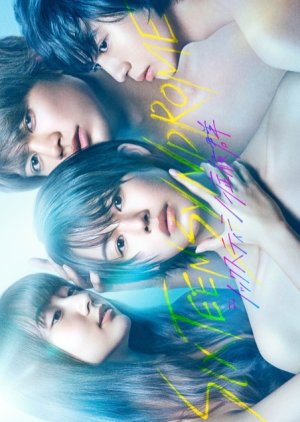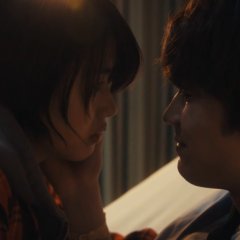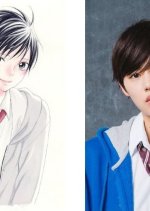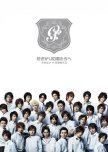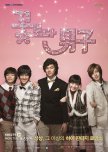 My Favorite Drama Friendships of 2020 (Youth and Beyond)
My Favorite Drama Friendships of 2020 (Youth and Beyond) This story centers around four teenagers fighting their past traumas and appreciating friendship. Azuma Ibuki and Otazawa Mei are a contrasting pair of friends. Azuma is a tomboy and popular among girls as a prince while Mei is called the princess. Asada Mutsumi is a playboy who thinks girls are easy to fool. Sakurai Nao is someone who gets bullied by everyone but lives in a denial and doesn't stand up for himself. When they all meet how will their lives turn around? ~~ Adapted from the manga "Sixteen Syndrome" (シックスティーン症候群) by Konatsu (小夏). Edit Translation
- English
- magyar / magyar nyelv
- dansk
- Norsk
- Native Title: シックスティーン症候群
- Also Known As: Sixteen Syndrome
- Director: Smith
- Screenwriter: Shimoda Yuko
- Genres: Psychological, Romance, Youth, Drama
Cast & Credits
- Takeuchi AisaAzuma IbukiMain Role
- Itagaki MizukiAsada MutsumiMain Role
- Takeda RenaOtazawa MeiMain Role
- YutaroSakurai NaoMain Role
- Yoshida HarutoShiraishiSupport Role
- Matsuda YugaKawashimaSupport Role
Reviews

Asuma Ibuki and Otazawa Mei are Mutsumi's classmates. They've been best friends since childhood, with the tomboyish Ibuki always at Mei's side as her constant protector and savior. Mei is shy to the point of being almost incapable of interacting with anyone else, so the two of them focus solely on each other, rarely allowing anyone else into their circle.
With Mei being so fearful of other people, Mutsumi at first sees her as his ultimate challenge, but as soon as he starts in with his usual tactics to win her over Ibuki realizes what he's up to and fiercely shuts him down.
This leads the undaunted Mutsumi to start thinking that Ibuki herself would be an even more challenging conquest than Mei. He makes a bet with two of his friends that he can make Ibuki fall in love with him, and from there the game begins.
A compelling addition to the series are occasional "self confessional" videos where individual characters sit alone and reveal their private thoughts and feelings. These segments are filmed in portrait mode as though recorded with a mobile phone, adding to their sense of immediacy and rawness. It is here that we learn how troubled Mutsumi really is, and Mei as well. In Mutsumi's case these sessions expand upon his character and make him more sympathetic, and it's through them that we learn that the feelings he's showing toward Ibuki have become real for him.
Ibuki is the most central character to the series, since the other three -- Mei, Mutsumi, and a younger student named Sakurai Nao (introduced about midway through the series) -- are much defined by the ways in which Ibuki has awakened a need in each for a deeper connection with her.
Performances are superb all around.
Itagaki Mizuki impressively navigates the many sides of Mutsumi's character, making us gradually understand why he's become so guarded and hostile, and eventually making us want the best for him. With Ibuki's encouragement Mutsumi gathers the courage to let others -- including his estranged mother -- know the real him, and it's endearing to see how much wonder he feels over Ibuki's sincere concern for his emotional well-being.
Takeda Rena as Mei fully embodies that character's vulnerability, and we cheer her on when she finally attempts to expand her world beyond Ibuki, one tiny step at a time.
Rounding out the main cast, Goto Yutaro makes a perfect Nao, androgynously beautiful and fearless in his own way, not hesitating to make his feelings known to Ibuki as soon as he realizes them.
'Sixteen Shoukougun' ('Sixteen Syndrome') is much more than a high school romance. Its complex characters will stay with you long after it has ended, and if you're like me you'll be returning to it again to pick up on what you might have missed before.
Was this review helpful to you?

Sweet little 16...
I really liked this J-drama. The story was short but surprisingly intense about 4 high school freshmen who are taking their first steps to adulthood and the changes necessary for that to happen. All 4 of the leads are suffering from one type of trauma or another. One (Mei) is almost OCD when it comes to her relationship with her one and only friend, Ibuki, the female 1st lead. She's so jealous of her that some other students think they're a couple.It was refreshing to see a female lead who was tom-boyish and comfortable in her skin. I loved the fact that she doesn't change herself (style or confidence-wise) you could see why everyone wanted to be around her. I also loved how she navigated all the love letters and confessions she got from both sexes.
I scored it an 8. I would have scored it higher but the ending is abrupt, to say the least.
Bottom Line: If you are looking for a short drama to watch on the bus or between classes this is a good one.
Was this review helpful to you?

